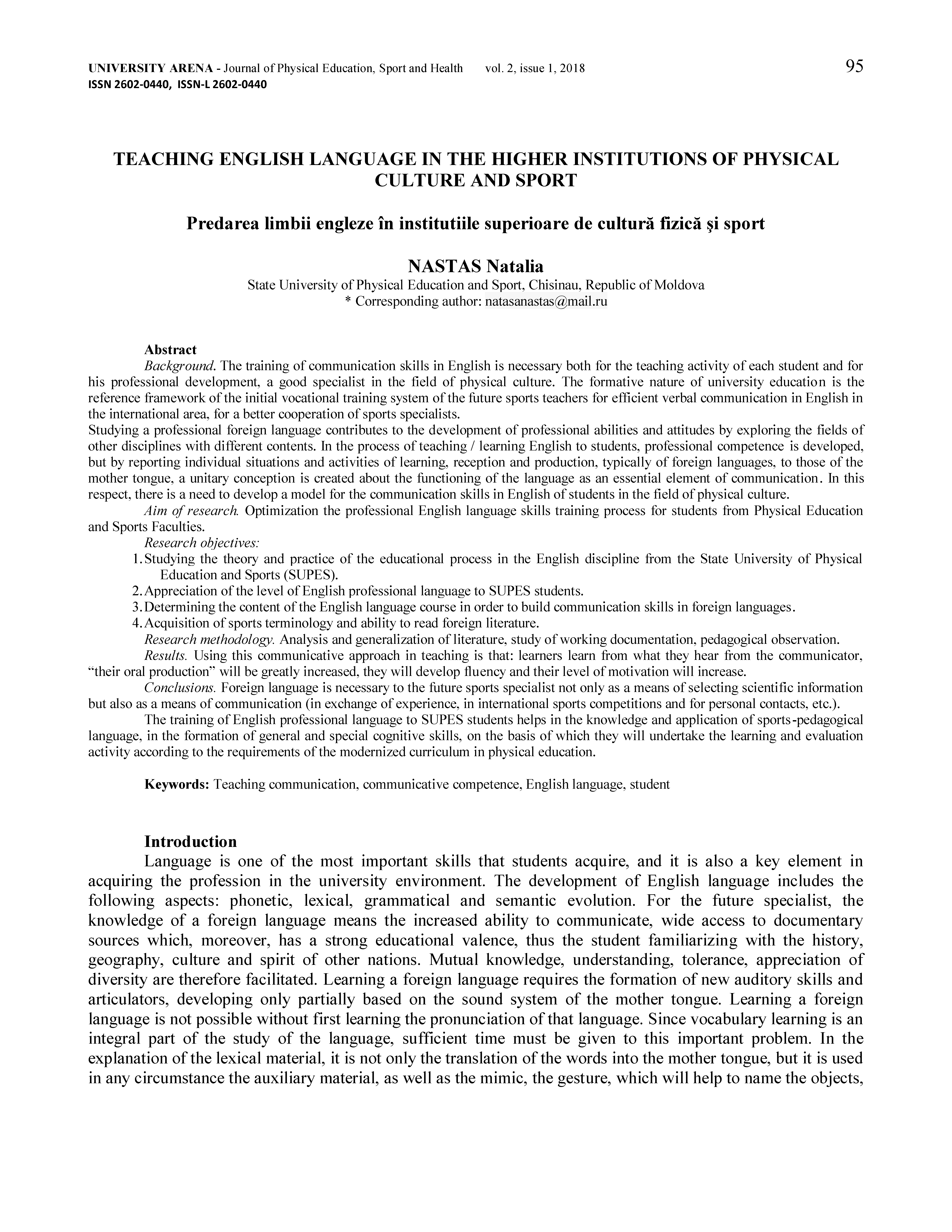TEACHING ENGLISH LANGUAGE IN THE HIGHER INSTITUTIONS OF PHYSICAL CULTURE AND SPORT
DOI:
https://doi.org/10.62229/UaII_1_18-16Keywords:
Teaching communication, communicative competence, English language, studentAbstract
Background. The training of communication skills in English is necessary both for the teaching activity of each student and for his professional development, a good specialist in the field of physical culture. The formative nature of university education is the reference framework of the initial vocational training system of the future sports teachers for efficient verbal communication in English in the international area, for a better cooperation of sports specialists.
Studying a professional foreign language contributes to the development of professional abilities and attitudes by exploring the fields of other disciplines with different contents. In the process of teaching / learning English to students, professional competence is developed, but by reporting individual situations and activities of learning, reception and production, typically of foreign languages, to those of the mother tongue, a unitary conception is created about the functioning of the language as an essential element of communication. In this respect, there is a need to develop a model for the communication skills in English of students in the field of physical culture.
Aim of research. Optimization the professional English language skills training process for students from Physical Education and Sports Faculties.
Research objectives: 1. Studying the theory and practice of the educational process in the English discipline from the State University of Physical Education and Sports (SUPES). 2. Appreciation of the level of English professional language to SUPES students. 3. Determining the content of the English language course in order to build communication skills in foreign languages. 4. Acquisition of sports terminology and ability to read foreign literature. Research methodology. Analysis and generalization of literature, study of working documentation, pedagogical observation. Results. Using this communicative approach in teaching is that: learners learn from what they hear from the communicator, “their oral production” will be greatly increased, they will develop fluency and their level of motivation will increase.
Conclusions. Foreign language is necessary to the future sports specialist not only as a means of selecting scientific information but also as a means of communication (in exchange of experience, in international sports competitions and for personal contacts, etc.). The training of English professional language to SUPES students helps in the knowledge and application of sports-pedagogical language, in the formation of general and special cognitive skills, on the basis of which they will undertake the learning and evaluation activity according to the requirements of the modernized curriculum in physical education.


